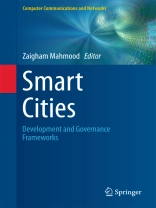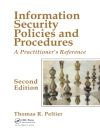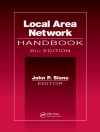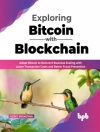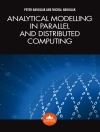This invaluable text/reference investigates the state of the art in approaches to building, monitoring, managing, and governing smart cities. A particular focus is placed on the distributed computing environments within the infrastructure of such cities, including issues of device connectivity, communication, security, and interoperability. A selection of experts of international repute offer their perspectives on current trends and best practices, and their suggestions for future developments, together with case studies supporting the vision of smart cities based on the Internet of Things (Io T).
Topics and features: examines the various methodologies relating to next-level urbanization, including approaches to security and privacy relating to social and legal aspects; describes a recursive and layered approach to modeling large-scale resource management systems for self-sustainable cities; proposes a novel architecture for hybrid vehicular wireless sensor networks, and a pricingmechanism for the management of natural resources; discusses the challenges and potential solutions to building smart city surveillance systems, applying knowledge-based governance, and adopting electric vehicles; covers topics on intelligent distributed systems, Io T, fog computing paradigms, big data management and analytics, and smart grids; reviews issues of sustainability in the design of smart cities and healthcare services, illustrated by case studies taken from cities in Japan, India, and Brazil.
This illuminating volume offers a comprehensive reference for researchers investigating smart cities and the Io T, students interested in the distributed computing technologies used by smart living systems, and practitioners wishing to adopt the latest security and connectivity techniques in smart city environments.
Tabela de Conteúdo
Part I: Frameworks and Models .- Modeling Smart Self-Sustainable Cities as Large-Scale Agent Organizations in the Io T Environment.- Cyber Security System: An Essential Pillar of Smart Cities.- Towards Heterogeneous Architectures for Hybrid Vehicular Sensor Networks for Smart Cities.- Pricing Mechanisms for Energy Management in Smart Cities.- Part II: Challenges and Opportunities .- Building Intelligent Systems for Smart Cities: Issues, Challenges and Approaches.- Io T Challenges in Data and Citizen Centric Smart City Governance.- Smart City Surveillance at the Network Edge in the Era of Io T: Opportunities and Challenges.- Big Energy Data Management for Smart Grids – Issues, Challenges and Recent Developments.- Risks and Challenges of Adopting Electric Vehicles in Smart Cities.- Part III: Examples and Case Studies .- Rising of Yokohama, Keihanna, Kitakyushu & Toyota Smart Cities in the Land of the Rising Sun.- A Business Model for Digital Services for Smart Cities in India.- Opportunities for Brazilian Smart Cities: What is Realistic and What is Not.- Standards-Based Sustainability Requirements for Healthcare Services in Smart Cities.
Sobre o autor
Prof. Dr. Zaigham Mahmood is a Senior Technology Consultant at Debesis Education UK and a Professor at the Shijiazhuang Tiedao University in Hebei, China. He also holds positions as Foreign Professor at NUST and IIU in Islamabad, Pakistan. He has previously served as a Reader (Associate Professor) at the University of Derby, UK, and Professor Extraordinaire at the North West University Potchefstroom, South Africa. Among his many publications are the Springer titles Connected Environments for the Internet of Things, Software Project Management in Distributed Computing, Requirements Engineering for Service and Cloud Computing, Connectivity Frameworks for Smart Devices, Data Science and Big Data Computing, Cloud Computing: Challenges, Limitations and R&D Solutions, Continued Rise of the Cloud, Cloud Computing: Methods and Practical Approaches, Software Engineering Frameworks for the Cloud Computing Paradigm, and Cloud Computing for Enterprise Architectures.
